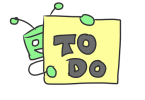Helping Career Changers Around The World
January 2013
What do you want for 2013?

In addition to choosing a word to represent how you want 2013 to be for you, there are other more detailed approaches to planning for the New Year that are well worth trying. If you are the kind of person who feels you need more detail, then I recommend this NLP approach to creating what they call ‘well formed outcomes’.
Many plans fail because they are too loosely framed – I want to be happy, I want more money, I want to be in a new job. Do these sound familiar to you? They are all valid goals but they are far too vague and so it is difficult for you to turn them from theory to practice.
And the whole point of planning is to achieve the desired outcomes or results, isn’t it?
This is where the NLP model of well formed outcomes can really help. By using the six checks defined in the model you can be sure that the goal you fix on for 2013 goal will be clearly defined, giving you direction and purpose.
There are six key elements to creating a well-formed outcome and they are as follows:
1. State your outcome in a positive way
Another way of adding to the energy of a positive outcome is to ask yourself ‘What will this outcome do for me?’ This helps you to focus on the benefits for you personally.
2. Is achieving this goal within your own control?
If your outcome is dependent on someone else doing something, then it can limit your ability to make the change you want. ‘I want my boss to stop picking on me’ is not directly within your control, but ‘I will learn how to respond more assertively to my boss’ is. So make sure you are largely in control of the goal you set and if others need to make a contribution, part of your goal may be to think about how you can get them on board.
3. In what context do you want to achieve this?
Think carefully about when & where you want this outcome. What is your timescale and where do you see it happening? Who will be with you on the journey? Who do you want to find there when you arrive? And how long do you want this outcome to last for – is it permanent or a one-off event?
4. What evidence will show you have achieved this?
Be as concrete as possible by considering exactly what you will see, hear and feel.
Describe your outcome in detail using all your senses to make it as clear a picture as you can.
Take another perspective too and describe what others will see, hear and feel too.
5. What resources do you have / will you need to achieve this outcome?
What do you need to make this happen? Look at both resources within you and those you will find outside. For example information & skills, people who can help and guide you, time to devote to achieving your goal, personal resources such as your own attitude and motivation. You may need to set a smaller outcome first such as gathering information or seeking support from a friend or mentor.
6. What will the impact be for you when you reach your goal?
Think about the positive benefits for you – what will be the good things that will happen when you achieve your goal? But then stop to consider also what the costs may be. What may you have to give up if you go for this goal? What is good about your current situation that you may have to sacrifice? Who else might be affected and how do you think they will respond?
Working through these six steps will ensure that your goal is something that you are truly committed to and that you know you can see through to completion.
Putting this model into practice.
So why not get on the phone and arrange to meet with someone in the next few days to make sure that you have created a truly ‘well formed outcome’ for 2013?
Something to think about
“Every time you are tempted to react in the same old way, ask if you want to be a prisoner of the past or a pioneer of the future.”
~ Deepak Chopra ~
Cherry Recommends
Is Your Life Mapped Out?
Unravelling the Mystery of Destiny vs Free Will
David Hamilton
Are you the kind of person who tends to think ‘what will be, will be’? Are you facing the New Year with a sense that you have only so much control and the rest is down to fate?
Or on the other hand do you take the line that your life is what you make it?
Whatever your current thinking, this book will open your eyes and mind to a new way of looking at how your life unfolds.
What I like about David Hamilton is that he is a scientist on the one hand, but on the other, is not afraid to wander into more esoteric territory exploring things such as how solar cycles affect our biological rhythms, how our genes affect our development and how we can overrule their influence, quantum physics and the interaction of mind and ‘reality’.
Now before you run for the hills at the sound of what might seem quite a heavy read, let me reassure you that David Hamilton writes in a totally accessible style, making complex matters easy to understand.
In the last chapter, he offers you 10 ways of working on attracting what you want in your life, drawing on the material he has already discussed in the book. So if you are looking for a different approach to planning the next year of your life and career, then I recommend this is a great place to begin.
With very best wishes for your career success in 2013!







Leave a Comment